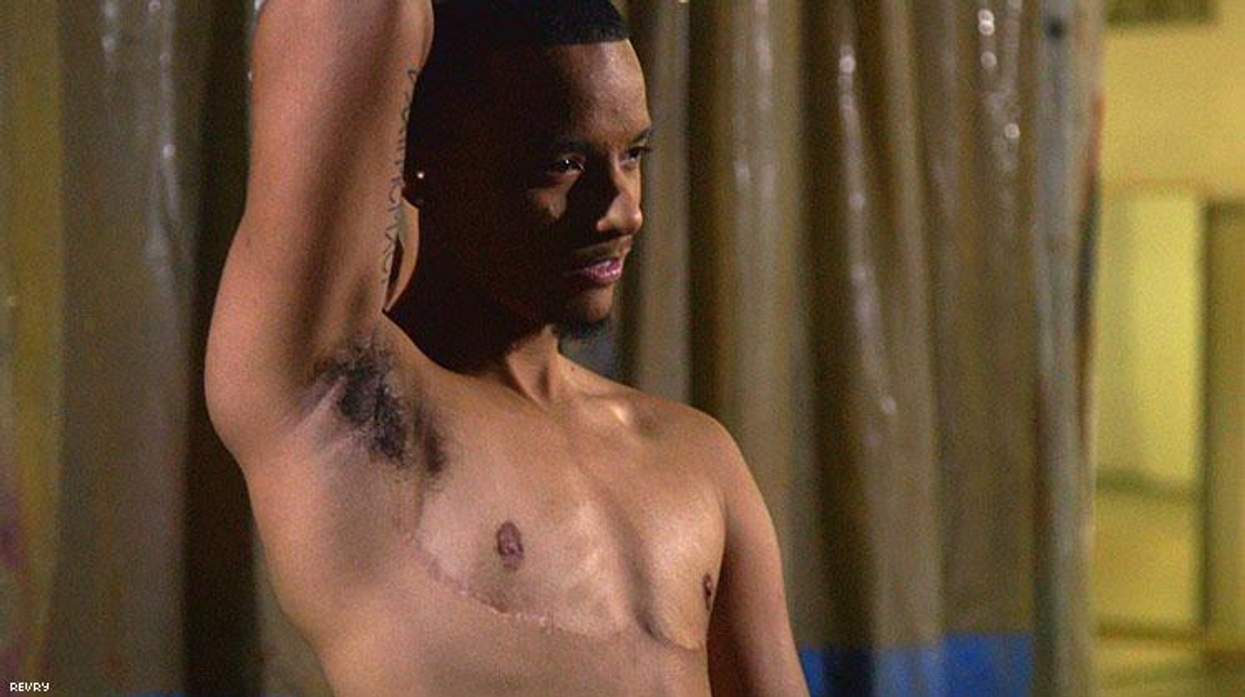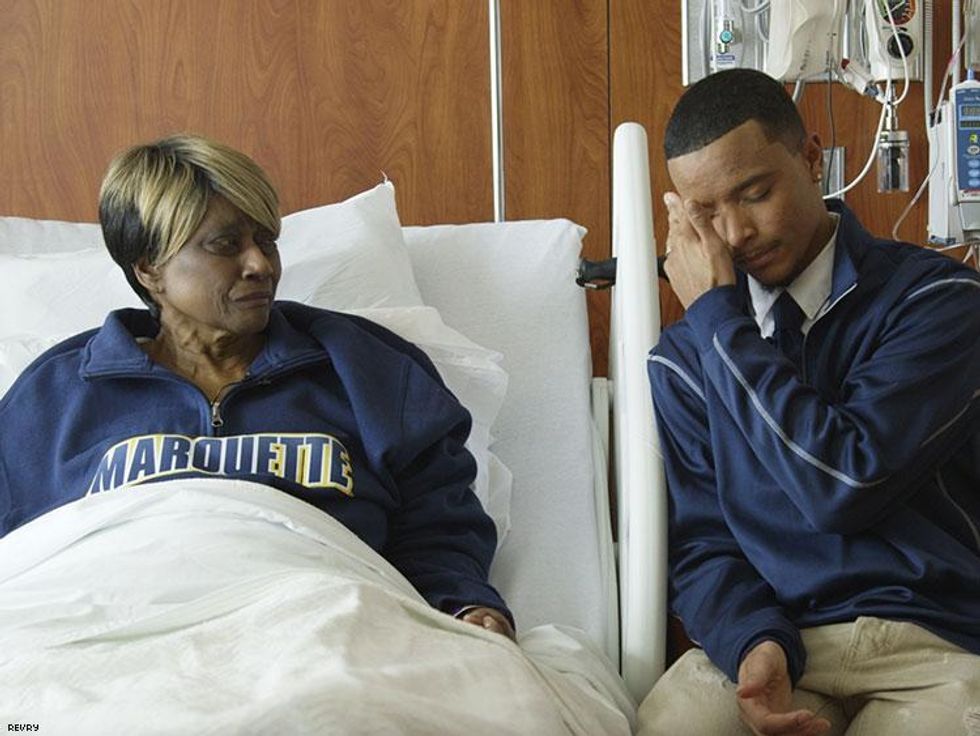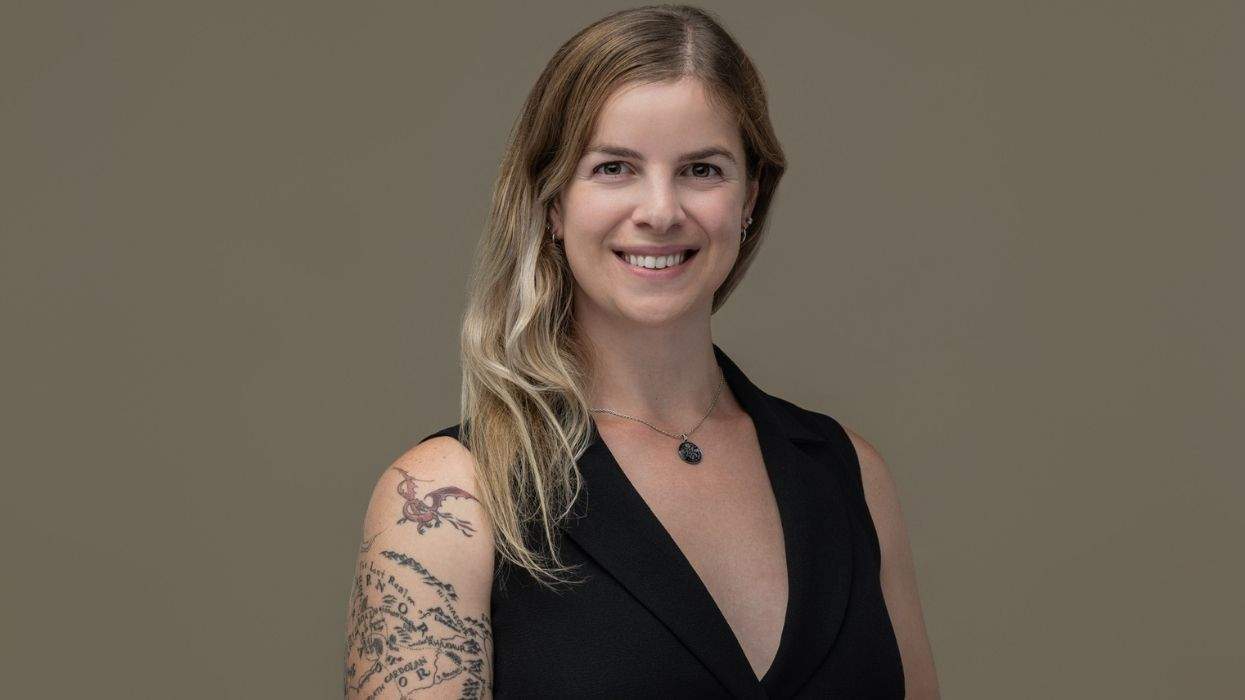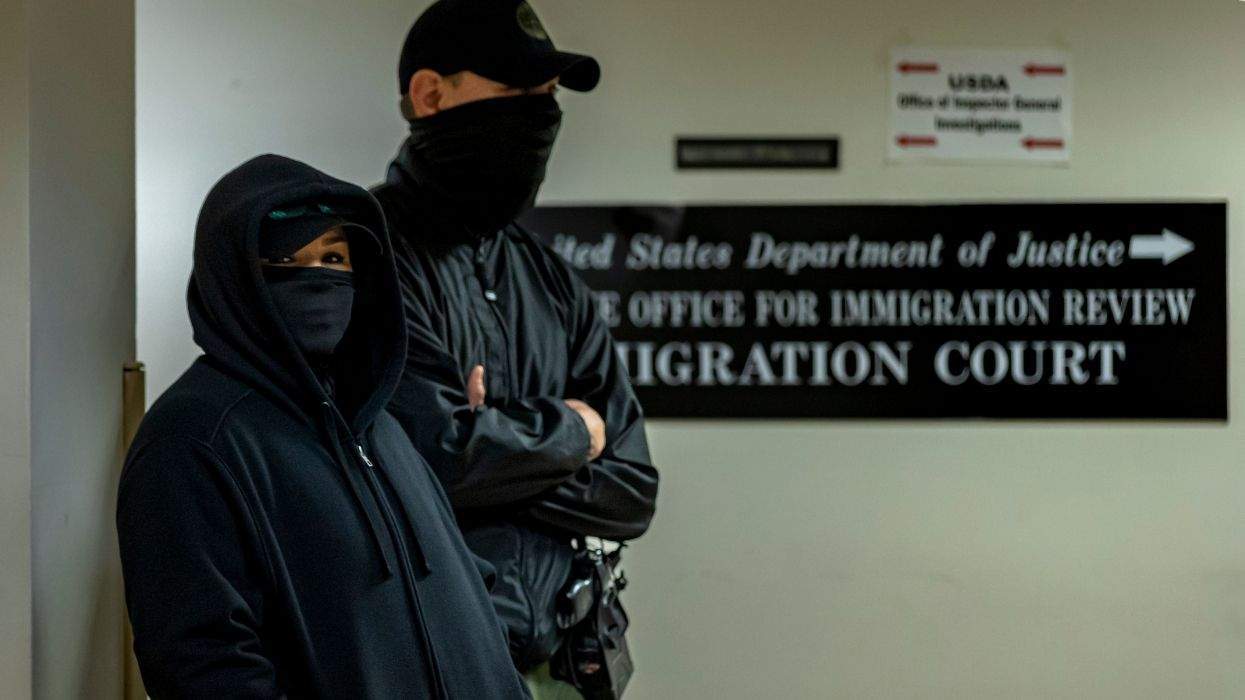America in Transition is Andre Perez's new documentary series featuring the stories of trans people of color from across the country. Its release coincides with the annual Trans Day of Visibility and desperately needed representation at this crucial point in fighting for LGBTQ+ rights. In the midst of presidential push for the trans military ban, the voices of the trans community, especially trans people of color, are needed more than ever. Shows like Transparent and Pose give insight into fictional experiences of trans people today, but AIT provides an unfiltered look into the lives of real trans people of color across the United States.
"My first media encounter was my stepfather screaming epithets at the TV during The Jerry Springer Show's 'My Girlfriend's A Man'" Perez shared with The Advocate about his experiences with trans representation.
As a young Puerto Rican trans man growing up in the South, that negative depiction on screen didn't make things easier for him or his family. "I didn't see myself in that person on any conscious level, but I still felt confused and sad at my family's reactions."
That episode, like many representations of trans individuals in the past, poked and prodded at the trans woman featured, digging into her personal life and denying her female identity by constantly referring to her as a man. Though television and film have veered away from that level of negative representation in recent years, the normalization of trans identities in media still has a long way to go. And even in the case of empowering trans representation, it's almost always white trans women.
AIT includes stories of trans men and women, from a former servicemen turned activist to a woman living proudly with her HIV diagnosis, all from a POC point of view.
One of the individuals featured was Dezjorn Gauthier, a black trans model and activist from Wisconsin. In AIT's second episode, he touches on his unique experience as a trans man in the modeling industry. Gautheir understands how influential and important his modeling success can be for others.
"To make the cover page and be on the mainstream, be in headlines, is a huge step for my communities. Not just one community, but the multiple communities that I identify with."
For him, modeling is so much more than a career or pretty smile on a magazine. "I'm smiling for kids that are afraid to come out of their room or afraid to come out to society period, and smile, or they don't think they have a reason to smile. When they see me, they're like 'wait a second' I can be like him. I can smile like him."
His experience as a black trans model starts the episode, but it was Gauthier's relationship with his mother that really touched hearts. For many LGBTQ+ people, parents are some of the hardest people to come out to and Gautheir's experience was no different, as his mother was the last to find out about his trans identity -- via a magazine spread. The episode goes on to explain how their relationship was strained after he came out but through his mother's terminal cancer diagnosis, they were able to mend and heal.
Perez was particularly drawn to Gautheir's story because of his own experience with his mother's terminal illness. "Seeing Dezjorn and his mother make space to listen to one another was bittersweet because it helped me see that the two of them had the foundation of a good relationship which my mother and I do not -- mutual respect, interest in understanding, and genuine communication."
Shows like AIT and stories like Dezjorn's can influence the way parents and people respond to trans or other LGBTQ+ identities. Imagine if Perez's parents had seen Transparent, Pose, or AIT instead of the The Jerry Springer Show? What could the televised acceptance and celebration of trans identities do for a young trans kid and their family today?
The goal, however, isn't to make the trans experience something simplified and digestible for the straight, cisgender majority.
"When we narrowly define trans issues, we ignore how pervasive and interconnected injustice is," Perez said.
Despite the aspects of each episode that can relate to larger communities, Perez believes there is no such thing as universal stories. Rather he feels "we need to build bridges across difference towards a vision of liberation that's big enough to include trans folks, black folks, indigenous folks, women, and many other groups." The reason each of these minority stories can be so influential is because their specificity makes them relatable. No, not everyone has Gautheir's experience of being a black trans male model who's mother is dying of cancer. But people can relate to the longing for acceptance and belonging. People can relate to the emotion of losing a loved one. People can relate to the humanity of other's experiences.
America in Transition offers audiences a chance to see what life is for trans people of color in this country. Despite all the world throws at them, each story is filled with resilience and strength. The docu-series gives this community the chance to be out, be visible, and be heard. Gautheir hopes one day, trans people "are seen as equal human beings and no longer marginalized. We are here and will always be!"
Watch a clip from Dezjorn's episode below. And stream the series on Revry.


















